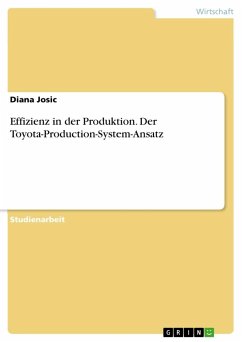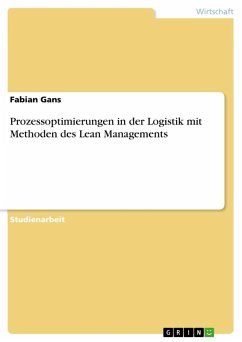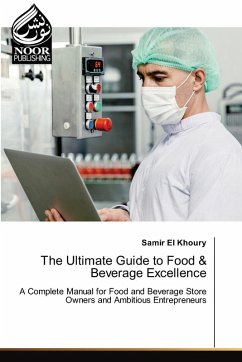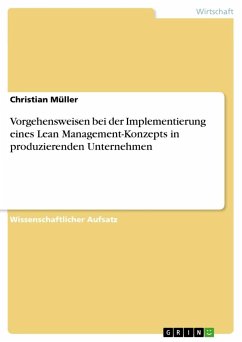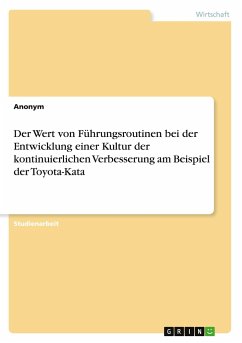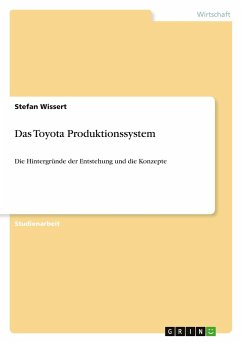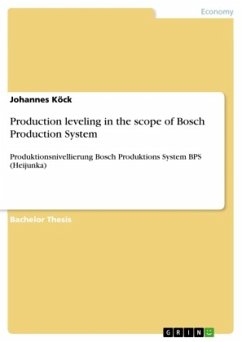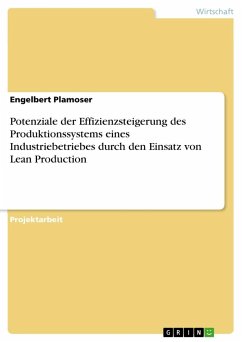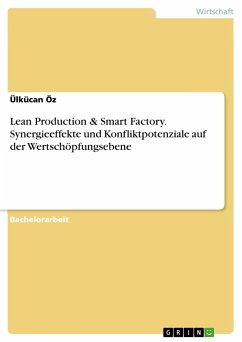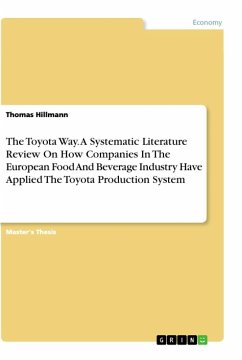
The Toyota Way. A Systematic Literature Review On How Companies In The European Food And Beverage Industry Have Applied The Toyota Production System

PAYBACK Punkte
0 °P sammeln!
Master's Thesis from the year 2017 in the subject Business economics - Supply, Production, Logistics, grade: 1,3, University of Manchester (Alliance Manchester Business School), language: English, abstract: The thesis at hand describes the findings of a systematic literature review that was undertaken to investigate if and how the Toyota Production System is being used in the European food and beverage industry. The research was conducted since the concerned industry is suffering from low productivity, increasing customer requirements and frequently occurring quality issues, although food safe...
Master's Thesis from the year 2017 in the subject Business economics - Supply, Production, Logistics, grade: 1,3, University of Manchester (Alliance Manchester Business School), language: English, abstract: The thesis at hand describes the findings of a systematic literature review that was undertaken to investigate if and how the Toyota Production System is being used in the European food and beverage industry. The research was conducted since the concerned industry is suffering from low productivity, increasing customer requirements and frequently occurring quality issues, although food safety is of utmost importance. The Toyota Production System was found capable to address all these issues both in its incumbent automotive sector and subsequently also in other industries.After identifying the dominant authors in the body of literature and classifying the extant literature into epochs, the research objectives for the study are addressed. These included an investigation of the drivers for lean implementation, the obstructing and facilitating factors, the performance outcomes of lean implementation and the lean practices that are predominantly described. With regards to the latter, also adaptions that were made to the lean methodology are presented.The most important findings include that lean methodology is already being used in the European food and beverage industry, even though only to a rather limited extent. Moreover, industry characteristics are found to present obstacles to lean implementation. Especially volatile demand patterns that are contrasted by production to forecast make it difficult to avoid overproduction. Also, natural variation and perishability of materials can make the adoption of lean principles challenging. However, although the body of literature does not provide a solution for all obstacles, some presented adaptions to the lean methodology can address at least some of them.In the end, the concluding assessment is made that the Toyota Production System can be seen as applicable to the European food and beverage industry. However, industry characteristics make it at times necessary to adapt the lean methodology creatively.





